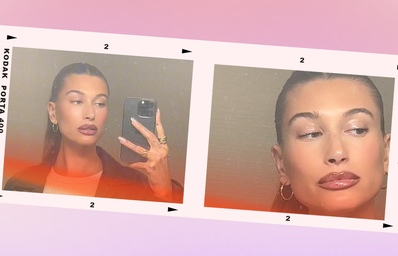During a late-night scroll through the depths of TikTok, I stumbled across a video titled “Donating Plasma.” With my limited knowledge of plasma being whatever I remember from grade 11 biology, I found myself intrigued. The woman in this video shared her experience of selling blood plasma in order to afford lip filler injections. This video left me with a multitude of feelings: sadness, confusion, and self-consciousness (note: spending an hour before bed on social media often has this effect). As someone studying health and society, particularly interested in women’s health, I understood this to be more than a simple quick cash scheme. Before delving into the social and historical contexts surrounding this video, I want to emphasize that everyone has the right to make choices about their bodies without judgment. The purpose of this article is to question the normalization of cosmetic procedures in Western society, not to pass judgment on those who choose to undergo such procedures.
Let’s dive into the first topic: donating plasma. In Canada, plasma donation is not financially compensated. In the United States, donors receive between $50 to $70 per session, and donations can be made as frequently as every seven days. Plasma is utilized in treating various traumas, including burn and shock patients, people with severe liver disease, or blood clotting deficiencies. Considering these facts, my interpretation is that donating plasma is a crucial act of selflessness and care, whether or not one is financially compensated. I do not believe that there is anything wrong with donating plasma for financial compensation. What I encourage you to further consider, in connection with the aforementioned video, is the exchange of natural bodily fluid for synthetic products and the casual manner in which this discussion was presented.
In one of my recent readings for a health and society class, we explored the psychological and physiological effects of cosmetic procedures on women. Given my prior knowledge of cosmetic procedures, I was not startled to find that 85% of cosmetic procedures in Canada are performed on women. I was also not surprised when statistical evidence revealed that the media almost entirely presents positive images and stories of cosmetic procedures, both in magazines and digital platforms. Testimonies from women interviewed for the article described some of their experiences with cosmetic procedures. The comment that sticks out to me most is one woman’s realization that through all of the influences that led her to get cosmetic surgery, she was being used as an object for monetization. Related to sexism and ageism, systems of thought deeply embedded with Western society’s capitalist framework, women are objectified. The cosmetic procedure industry commodifies women’s bodies as subjects and objects by imposing societal expectations on women to conform to strict beauty ideals. Cosmetic companies, from makeup to Botox manufacturers, profit off of the objectification of women that is perpetuated within society, especially through media platforms.
After watching the TikTok that began this whole investigation and reading about plasma donation as well as personal testimonies of cosmetic procedures, I’m left in a gray area. I will not say that plastic surgery and the entire cosmetic surgery is awful, or that anyone who chooses to participate in it is pro-capitalism and anti-feminism. I do not believe that is the case at all. I, too, love makeup, sport fake nails, and have wondered what my lips would look like if they were a little bit fuller. What I want to convey through this article is that there are historical and cultural contexts that linger behind the scenes of the cosmetics industry, and they generally are not in the interest of female empowerment. I want to encourage you to consider why someone else, or yourself, feels inclined to undergo any cosmetic procedure. It is extremely difficult to reject societal expectations of beauty, especially as a young woman, and I am not saying that you should. But remember, at the expense of your self-worth and identity, someone else’s pockets are growing deeper and deeper.

